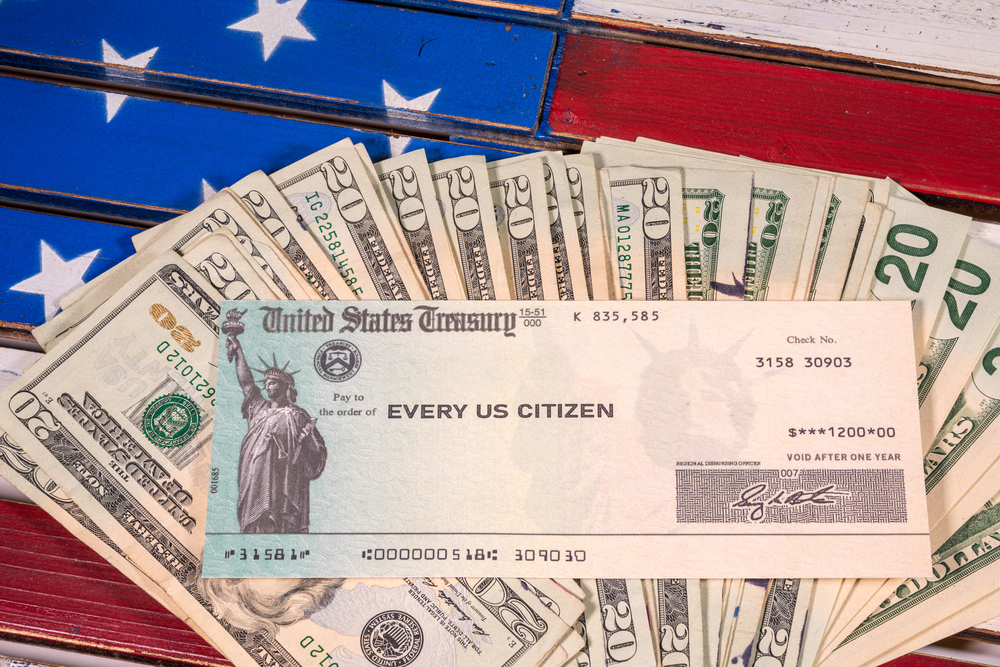How Do I Report My COVID Stimulus Income on My Taxes?
Peacock & French CPAs
Jan 01, 2021

The majority of individuals and businesses in America received some form of financial relief last year as a result of the CARES Act (Coronavirus Aid, Relief, and Economic Security Act) passed in early 2020. Now that the year has ended and it’s time to start thinking about filing taxes, many of those people are uncertain as to how their individual stimulus checks and Paycheck Protection Program (PPP) loans for their businesses will impact their returns. How do you report that individual income, if you report it at all? Can your business still take deductions if you took a PPP loan? Keep reading to get answers to these questions and more.
Reporting Individual Stimulus Income
When stimulus checks were sent out in the spring and summer of 2020, the wording surrounding those payments left many people confused about whether or not the check was just an advance on their tax refund. This was not the case, and the stimulus amount you received will not reduce your refund or increase what you owe in taxes this year.
But many people are still confused about how to report this income on their returns. For most people, you don’t actually need to report the stimulus check as income at all. Because the COVID stimulus payments were tax-free income, you don’t need to worry about adding them onto your tax return this year.
Reconciling Underpayment or Overpayment
But what if you were underpaid or overpaid in your stimulus check? Because the amount you received was based on your income reported on your 2019 tax return (or 2018, if you hadn’t yet filed for 2019), there may be some instances where individuals were either under- or overpaid. In the latter case, you don’t have to worry. Whether your income was higher last year or you received money for a child who is no longer a dependent, that excess payment is yours to keep. There’s no provision in the law for repayment of excess COVID stimulus funds.
If you were underpaid, don’t worry—your tax return is your opportunity to receive what you should have gotten last year. After getting your COVID relief payment, you should have received Notice 1444 in the mail, which detailed how much you were given. There is also a new worksheet that you can attach to your tax return relating to COVID stimulus payments that is exclusively for those who were underpaid. Fill out the worksheet and include it, along with Notice 1444, when you file your return. Whether you didn’t get the full $1,200 per adult in your home, or you had a child last year and should have received $500 for your new dependent, this paperwork will ensure you get those payments. They’ll be added to your tax refund, or subtracted from what you owe in taxes this year.
Deducting Business Expenses with a PPP Loan
While the individual relief payments are relatively straightforward in terms of filing your taxes, the relief given to businesses is a bit more complicated. Many businesses received PPP loans to help keep companies open and employees on the payroll during COVID-19 shutdowns. But due to certain language in tax laws, businesses cannot deduct any expenses that were paid for with PPP funds.
This has been an issue of much debate among business advocates and politicians alike. Many argue that if the point of PPP funds were to offer financial relief to businesses, why would the IRS create an additional financial burden on those businesses by blocking tax deductions? The IRS, on the other hand, views deducting business expenses paid for with untaxed government income as “double dipping.”
Unfortunately, at this time, it remains in the tax law, and businesses cannot deduct any expenses that were paid for with PPP funds. If you’ve already received forgiveness for your PPP loan, you’ll need to remove any business deductions paid for with those funds from your tax return. If you’re still awaiting forgiveness, you’ll need to decide whether to take the deductions and potentially have to pay more taxes later if your PPP loan is forgiven, or leave off those deductions and file an amended tax return later if your loan is not fully forgiven.
It’s a complicated, difficult situation for business owners, but we’re here to help. If you need professional advice on how to handle your PPP loan and business deductions, contact us at Peacock & French CPAs today. We can also assist you if you were underpaid in your individual COVID stimulus payment and need to file the new worksheet with your taxes to receive full payment. Call now to schedule a consultation with one of our experienced tax professionals.